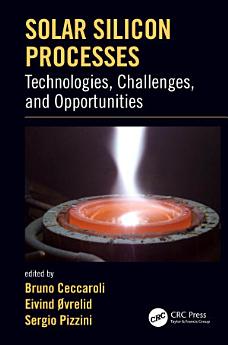Solar Silicon Processes: Technologies, Challenges, and Opportunities
Über dieses E-Book
- Analyzes past research and industrial development of low-cost silicon processes in view of understanding future trends in this field.
- Discusses challenges and probability of success of various solar silicon processes.
- Covers processes that are more environmentally sensitive.
- Describes limits of silicon use with respect to high-efficiency solar cells and challenges arising from R&D activities.
- Defines purity requirements and purification processes of MG-Si.
- Examines production of solar grade silicon directly from MG-Si.
Autoren-Profil
Bruno Ceccaroli holds a docteur ès sciences degree in nuclear chemistry from the University of Strasbourg (France). He has served as researcher and manager in large corporate companies including Saint-Gobain (Paris), Elkem (Norway), and Renewable Energy Corporation (Norway and USA). Silicon materials have been his main field of research and activity since 1986. He is currently (2008–present) an independent advisor and a scientific entrepreneur through his company Marche AS. He has published a dozen review articles on silicon to solar cells.
Eivind Øvrelid is Research Director for the PV silicon department in SINTEF Materials and Chemistry and holds a position at the Norwegian University of Technology (NTNU) as associate professor. Dr. Øvrelid has been working with PV technology with crystal growing in industry since 1999. He has contributed to development of the Solsilc process for production of PV grade silicon by a metallurgical route based on clean raw materials. He is the author of more than 60 technical articles published in peer-reviewed international journals.
Sergio Pizzini is the author of more than 250 technical articles published in peer-reviewed international journals. He has authored or coauthored four books, including Silicon, Germanium, and Their Alloys: Growth, Defects, Impurities, and Nanocrystals (CRC Press, 2014), and has been chairman or co-chairman of a number of international symposia. Throughout his career, he has conducted scientific studies with the Joint Research Centre of the European Commission, served as an associate professor at the University of Milano, worked as a director of the Materials Department of the Corporate Research Centre of Montedison, acted as the CEO of two research companies, and been a full professor of Physical Chemistry at the University of Milano-Bicocca, Italy.





